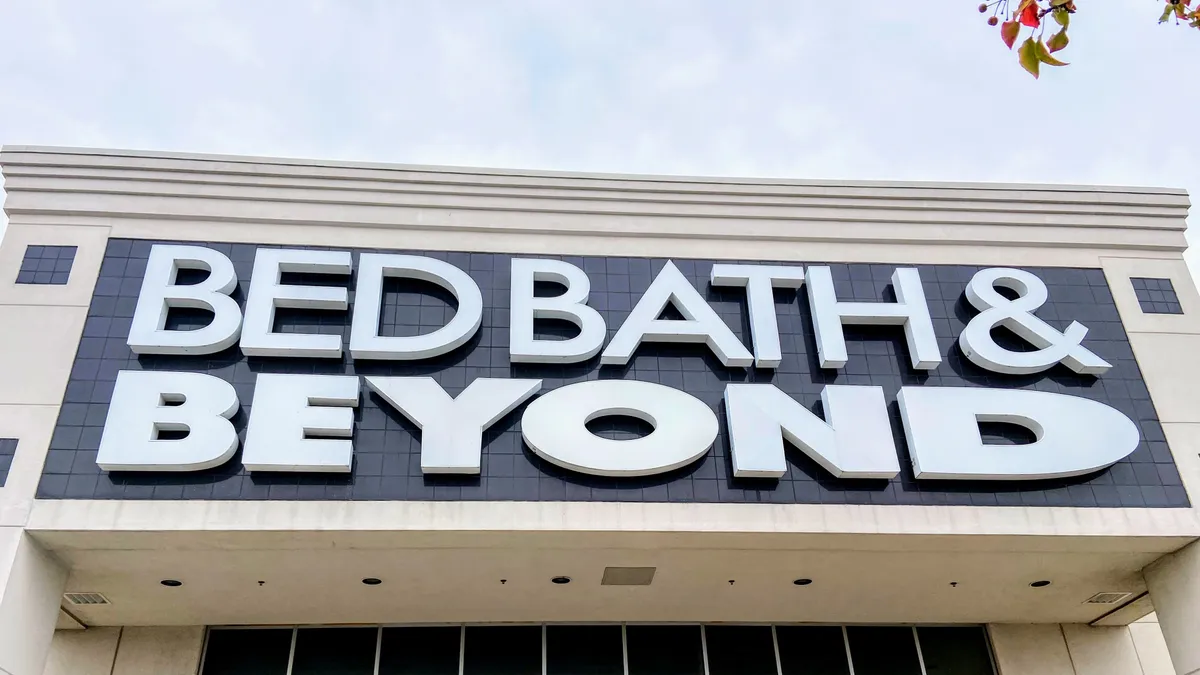Dive Brief:
- Overstock.com has won the auction to buy some of Bed Bath & Beyond’s assets, a Thursday court filing shows. The online-only retailer will pay $21.5 million for some of Bed Bath & Beyond’s intellectual property. Bed Bath & Beyond filed for Chapter 11 in April and is attempting to liquidate all its assets.
- The successful bid gives Overstock ownership of Bed Bath & Beyond’s internet properties, social media, mobile platforms, business data, publicity rights and trademarks. Overstock also agreed to assume some contract liabilities. But the deal does not include any brick-and-mortar stores.
- Overstock had submitted a stalking horse bid for the same price for those specific assets last week. A judge is scheduled to OK the sale on Tuesday in federal bankruptcy court in New Jersey.
Dive Insight:
Bed Bath & Beyond’s bankruptcy was long-anticipated, with the retailer warning in January that there were serious concerns about its ability to continue going. As well as impacts from the COVID-10 pandemic and shifting consumer behavior, the retailer’s C-suite also needed to deal with the personal and professional impact of the death by suicide of its then CFO Gustavo Arnal in September.
Overstock CEO Jonathan Johnson said in April that the company operates “in a large and fragmented marketplace,” and that struggles within the home goods retail sector are opportunities to gain market share. An Overstock spokesperson told Retail Dive by email on Thursday that "until this deal is final, Overstock cannot comment."
Bed Bath & Beyond made some operational strategy errors that, along with supply chain and pandemic-related challenges, contributed to the company’s eventual failure. The retailer filed for Chapter 11 in late April. At that time, Bed Bath & Beyond said it had nearly $1.8 billion in long-term debt.
Overstock had been luring suppliers away from Bed Bath & Beyond for months before making a bid for the now bankrupt retailer's IP. “We saw an opportunity to go to those suppliers that either weren’t getting paid or canceling their contracts [with Bed Bath & Beyond],” Johnson said in an interview with sister publication Supply Chain Dive.
The company said in previous court filings that it moved too slowly to embrace and strengthen its e-commerce offering. That position hurt the company when stores were forced to close at the height of the pandemic a couple of years ago.
Additionally, the company backed away from offering its popular big blue coupons. And a broad strategy switch to private brands backfired. When customers came looking for their favorite home decor name brands, they often weren’t available in stores.
Overstock also had a lackluster last quarter. In its most recent earnings report for Q1, Overstock reported a net loss of $10 million, a gross profit of $90 million – 23.5% of revenue – and total net revenue of $381 million, down 29% year over year for the quarter ending March 31.
Bed Bath & Beyond operated 360 of its namesake stores at the time of its bankruptcy filing. Ahead of its Chapter 11, the company closed two parts of its business — its 65-store Canadian business and its chain of Harmon beauty stores, which comprised 50 locations.
The company also had 120 BuyBuy Baby stores at the time of its Chapter 11 filing. Those stores are a bright spot in Bed Bath & Beyond’s distressed brand portfolio. A separate auction for that brand’s assets is scheduled for Wednesday. At least two bidders have expressed interest in BuyBuy Baby, which sells apparel, bedding and furniture.














